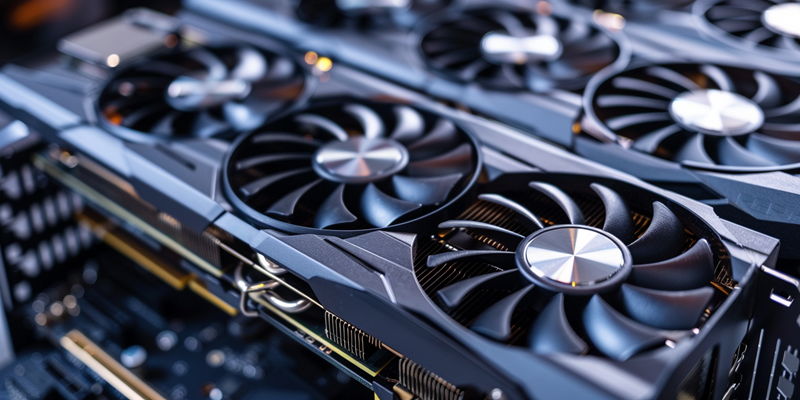The technological landscape is rife with speculation as recent rumors regarding Intel’s involvement in the graphics card market have surfaced, heralding a possible shift in the company’s strategic vision. A key figure behind these ominous forecasts is none other than the reputable leaker, Golden Pig Upgrade, who has thrown the future of Intel’s Arc Battlemage Xe2 and Celestial Xe3 GPUs into question. The ramifications of potential delays or cancellations would undoubtedly be significant, creating ripples across Intel’s consumer base and the broader technological community. As the saga unfolds, the industry watches intently to see whether Intel will realign its GPU roadmap or if this is merely a bump on the long road of innovation.
Intel’s Arc GPU Journey: A Rocky Road?
The genesis of Intel’s discrete GPU endeavor was met with much fanfare, yet the journey hasn’t been without its fair share of challenges. The Alchemist line was to be the foundation upon which the Battlemage Xe2 GPUs would build, marking a significant leap forward in performance and market share. However, whisperings of halted or delayed development cast a cloud of doubt over the perseverance and determination of a tech titan traditionally known for its unwavering progression. With Intel’s track record, any suspicion of a stumbling commitment to their discrete GPU lineup incites both concern and speculation about the company’s ability to fulfill its lofty ambitions in this competitive space.
The synergy between forthcoming Lunar Lake CPUs and the anticipated Battlemage GPUs underpins the importance of a synchronized development strategy for Intel. Should impediments arise, and the next-gen graphics acceleration miss its mark, the ramifications could be far-reaching. The intertwining of processing and graphical capabilities is crucial in today’s market, and any shift in the timeline could disrupt Intel’s proposed seamless integration, dampening the potential for a robust, unified platform. This possibility urges a closer examination of the implications of Intel’s roadmap and what an alteration could mean for the tech giant and its consumers.
Rumored Delays and Speculations: Dissecting the Signals
Golden Pig Upgrade’s revelations have set the stage for intensive speculation on the fate of Intel’s GPU projects. As industry observers piece together the puzzle, deciphering these rumors’ authenticity becomes a matter of utmost importance, outlining the trajectory of Intel’s graphics card ventures. Scrutiny of these claims sheds light on both the plausible scenarios and the potential strategies Intel could employ to navigate this uncertain period. Stakeholders, investors, and tech enthusiasts look on intently, as the decision to revamp the graphics card programs would indicate a definitive shift in Intel’s long-term vision, impacting the marketplace and consumer expectations.
Yet, amidst the clamor of these rumors, Intel’s dedication to optimizing its current offerings through consistent driver updates stands out as a testament to their commitment to the graphics division. This ongoing refinement casts a shadow of doubt over the idea that Intel might be scaling back its ambitions in the discrete GPU market. Regular enhancements and support for their existing products suggest a company still deeply invested in the gaming sector, with a view towards steady improvement and customer satisfaction. Such efforts speak volumes about Intel’s underlying strategy and hint that the journey for their GPU technology could be evolving rather than ending.
The Tech Community’s Reaction and the Greater Implications
A potential revision in Intel’s GPU strategy would reverberate well beyond the walls of the corporation. A shift could sway the expectations and decision-making processes of a vast array of stakeholders, from die-hard gaming enthusiasts to industry competitors. The tech community has been abuzz with reactions, dissecting each possible outcome and its implications on the industry landscape. This not only highlights the significance of Intel’s influence but also underscores the sensitivity of the market to developments within such a prominent player.
Potential Strategies for Intel Moving Forward
Speculation is mounting in the tech world as Intel’s foray into the graphics card arena becomes increasingly uncertain. The well-known leaker, Golden Pig Upgrade, sparked discussions by casting doubt on the fate of Intel’s next-gen Arc Battlemage Xe2 and Celestial Xe3 GPUs. The potential postponement or even cancellation of these products would not go unnoticed. Such a shift would have considerable impact, affecting Intel’s customers and resonating through the entire tech industry. Intel’s commitment to its GPU strategy is under scrutiny, and the implications of these alleged leaks are being closely observed. The question looms: will Intel stay the course with its graphics cards, adapt its vision, or has the rumor mill merely magnified a minor hiccup in its path of progress? The tech community remains on the edge of their seats as they await Intel’s next move in the high-stakes GPU market.

